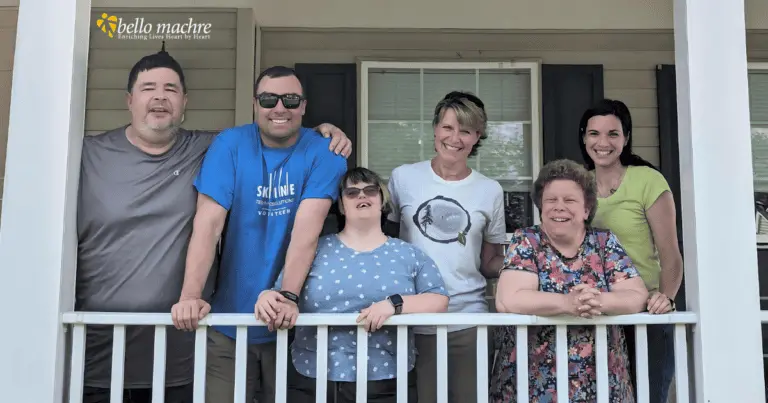The Necessity of Accessible Housing for People with Disabilities
By Randon Bittings, Chief Services Officer, Bello Machre
Accessible residential group homes play a crucial role in Maryland, offering tailored support to adults with intellectual and developmental disabilities. These homes foster community engagement, provide specialized ambulation accommodations, and promote independent living skills.

Enhancing Lives: The Impact of Accessible Residential Group Homes for Adults with Disabilities in Maryland
More than one million adults in Maryland are living with an intellectual or developmental disability. Many in this group struggle with mobility issues and cognitive disorders or need individualized assistance. They also face the challenge of finding supportive housing options that meet their wants and needs. Accessible residential group homes serve as a lifeline for people with intellectual and developmental disabilities, aiding overall health and well-being, building community, and facilitating the development of a rich and meaningful life.
Residential group homes offer a supportive environment in which adults with intellectual and developmental disabilities receive services and support tailored to their unique needs. They also foster a sense of belonging within the home and the surrounding community. Bello Machre’s 50 residential group homes aid nearly 180 residents in Anne Arundel and Carroll Counties, yet more work needs to be done to meet the housing needs of all adults in our community living with intellectual and developmental disabilities. Accessible residential group homes benefit not only their residents but their surrounding communities. Here’s how:
1. Community Engagement
Adults with disabilities experience mental distress almost 5 times as often as adults without disabilities. Accessible residential group homes enable community engagement, a vital component in supporting physical, mental, and social-emotional well-being, which combat anxiety and depression.
In Bello Machre homes, a Family Living Director (FLD) lives on-site, ensuring each individual has personal support, medical assistance, and an opportunity to engage in community activities. Residents have access to a full range of life experiences, including meeting friends who have similar interests and hobbies; enjoying new and exciting activities; giving back to the community; participating in the workforce; and relaxing in the comfort of their home.
2. Ambulation
Accessible housing remains one of the most significant challenges for adults with intellectual and developmental disabilities. Some deal with ambulation challenges, necessitating a wheelchair or other mobility aid. Visual impairments could make steps challenging.
Bello Machre residential group homes are designed to accommodate the residents’ needs, including ramps, wider doorways, and other modifications to facilitate mobility and independence. One-on-one support ensures everyone can participate as fully as possible in the home and community. For example, if a resident is in a wheelchair and doesn’t have the upper body strength or dexterity to ambulate, then a direct support professional (DSP) will help.
3. Independent Living skills
Accessible residential group homes help individuals with intellectual and developmental disabilities live more independently while maintaining access to necessary personal support services. This one-on-one support enables residents to develop independent living skills such as personal hygiene, meal planning, household chores, money and time management, and social skills.
4. Sense of Belonging
Residential group homes offer a sense of belonging and community. Every Bello Machre home has a unique personality. Some feel like college, with 30- and 40-somethings learning to cook, clean, budget, and socialize safely in the community. The FLD and DSPs support residents as they explore dating and socializing in the community safely and with dignity. In other homes, adults and seniors enjoy a slower pace of life.
Each home is accessible, so if someone who requires a wheelchair loves baking, the kitchen is designed to accommodate them. Residents choose their bedroom’s color and theme, and they celebrate holidays, host get-togethers, and invite family and friends to visit.
5. Educating the community
A common misconception about residential group homes is that they are halfway houses. Nothing could be further from the truth. Bello Machre homes blend into communities seamlessly, offering a warm, welcoming environment. By hosting community events such as Halloween celebrations, Bello Machre educates the surrounding communities about developmental and intellectual disabilities, fostering understanding, inclusion, and acceptance.
Despite significant benefits, increased investment and support are required to meet the demand for accessible group homes. The community can help close this gap by advocating for legislation to fund such initiatives and patronizing businesses that are accessible and employ individuals with intellectual and developmental disabilities. By investing in these vital resources, we can create a more inclusive and supportive community where all individuals, regardless of ability, have the opportunity to thrive.
